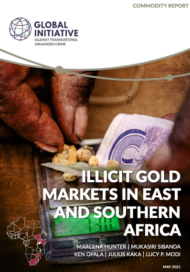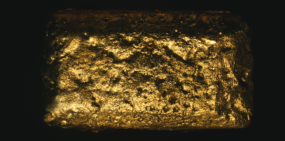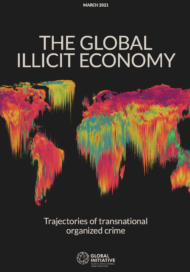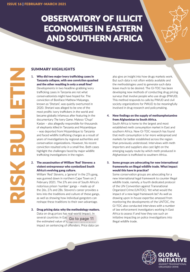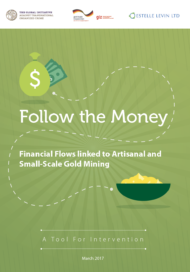Event Details
Register here > https://bit.ly/3wOANwd
In this webinar the author of the GI-TOC’s May 2021 Report “Illicit gold markets in east and southern Africa” will discuss the reports findings on market dynamics, supply chains, and actors involved in the illicit gold trade. Not only does the report shed light on criminal networks explotining the informal nature of the artisanal and small-scale gold mining sector, but also how the illicit gold trade is driven by corruption and in some cases linked to conflict and violence. Joining her will be fellow researchers who contributed to the report.
AUTHOR:
Marcena Hunter, Senior Analyst, Global Initiative against Transnational Organized Crime
Panellists – contributing researchers:
Ken Opala, Senior Analyst, Global Initiative against Transnational Organized Crime
Julius Kaka, Research Consultant, Global Initiative against Transnational Organized Crime
Mukasiri Sibanda, Tax and Natural Resource Governance, Tax Justice Network Africa
Lucy Poni, Consultant, Global Initiative against Transnational Organized Crime
Posted on 16 May 2021
Today, the artisanal and small-scale gold mining (ASGM) sector is governed by increasingly comprehensive legal and regulatory frameworks, and is reliant on transnational supply chains that connect rural mining operations to international gold hubs. However, the increase in illicit activities in gold-rich markets has undermined the potential for this precious commodity to be a catalyst for development in these regional African markets.
Effective responses to illicit activity in gold markets must seek to navigate the tension between combating criminality while maximizing the gold sector’s development potential. This requires a nuanced analysis of market dynamics, supply chains and networks. This study unpacks the factors that shape and drive the East and Southern African gold markets.
Research covered multiple countries, providing insights into national and regional market dynamics and trade flows. The cross-border regional dynamics of illicit gold supply chains means examination of this issue requires applying a wide lens. South Sudan, Uganda, Kenya and Zimbabwe were selected for field research, with some limited research conducted in South Africa.
